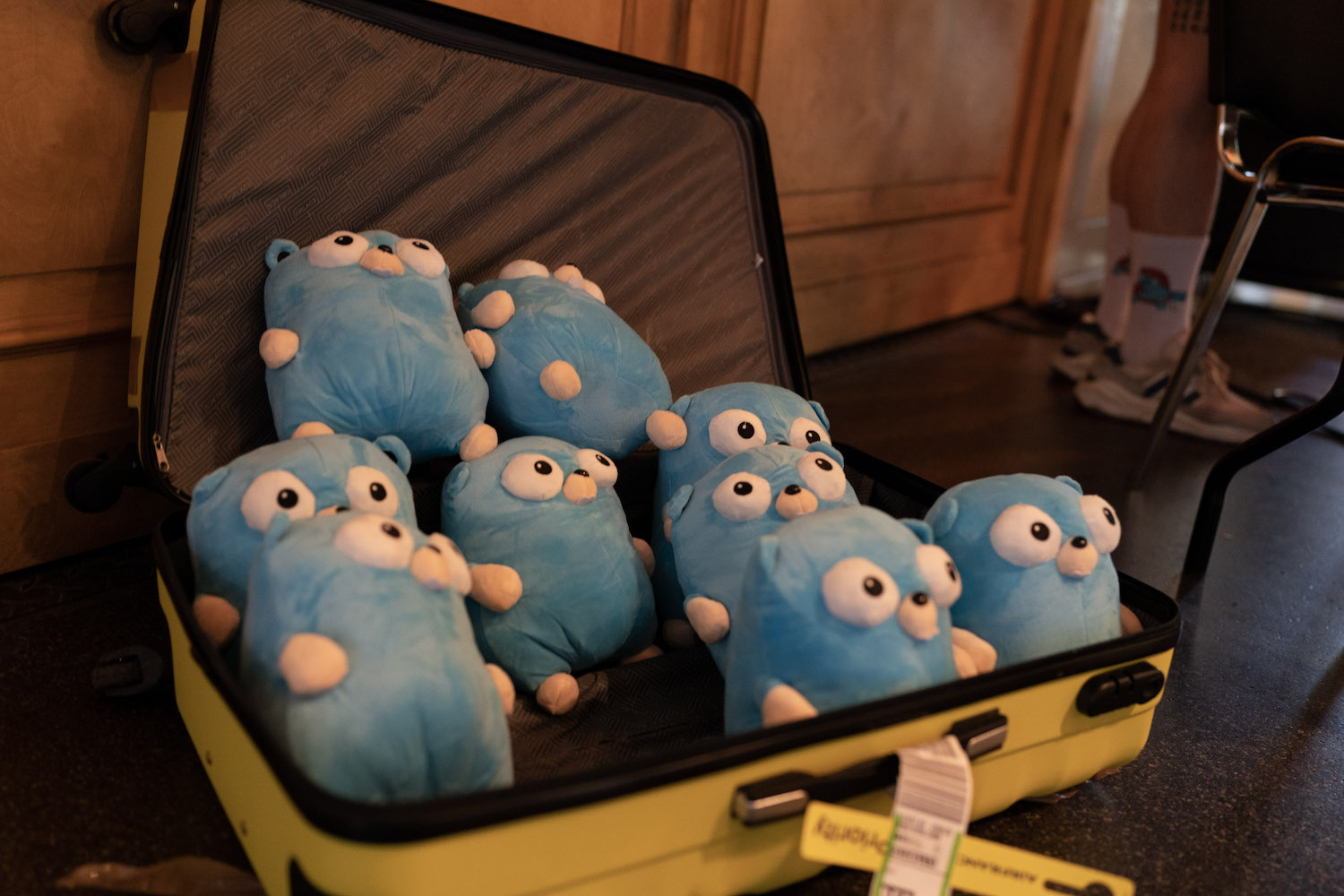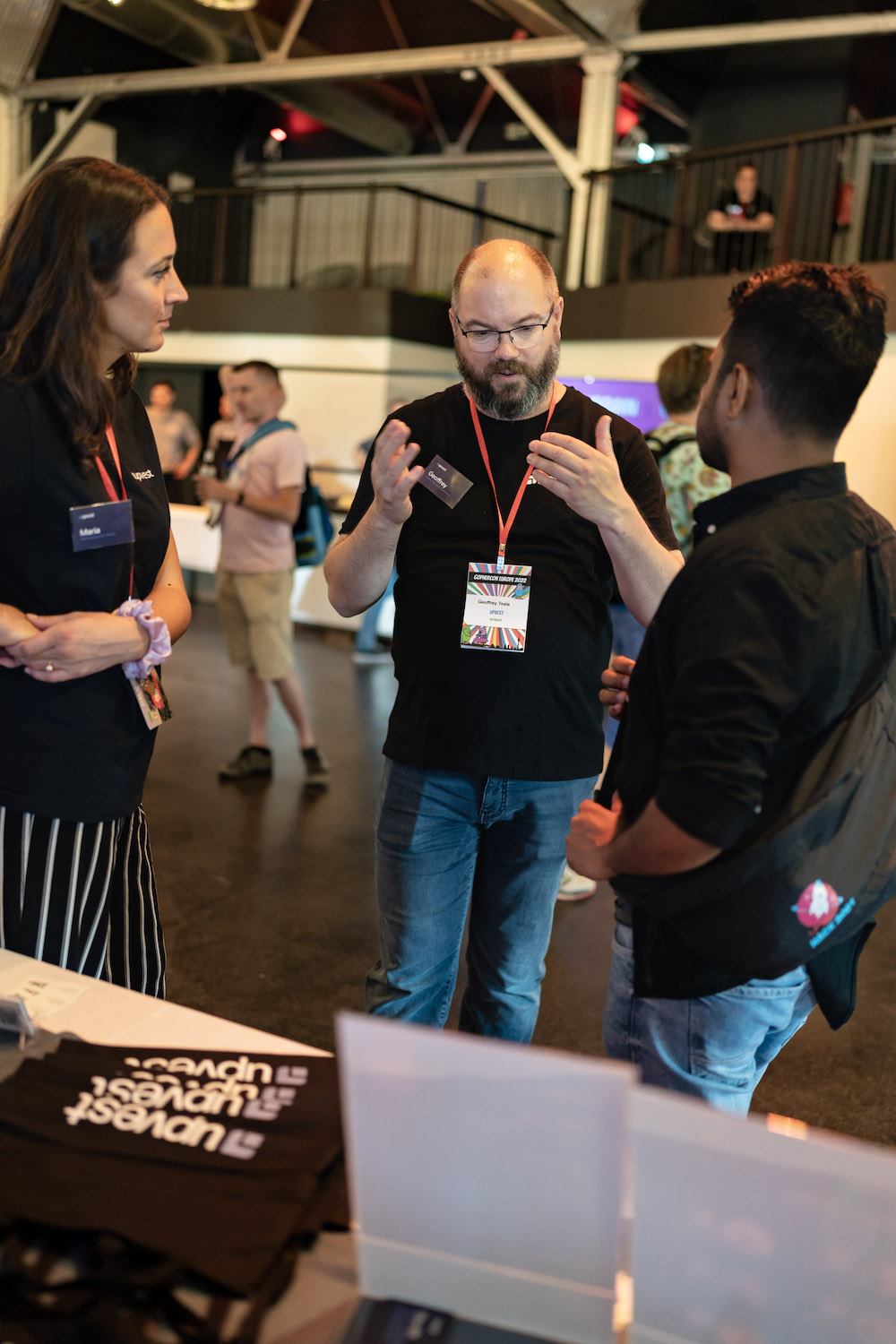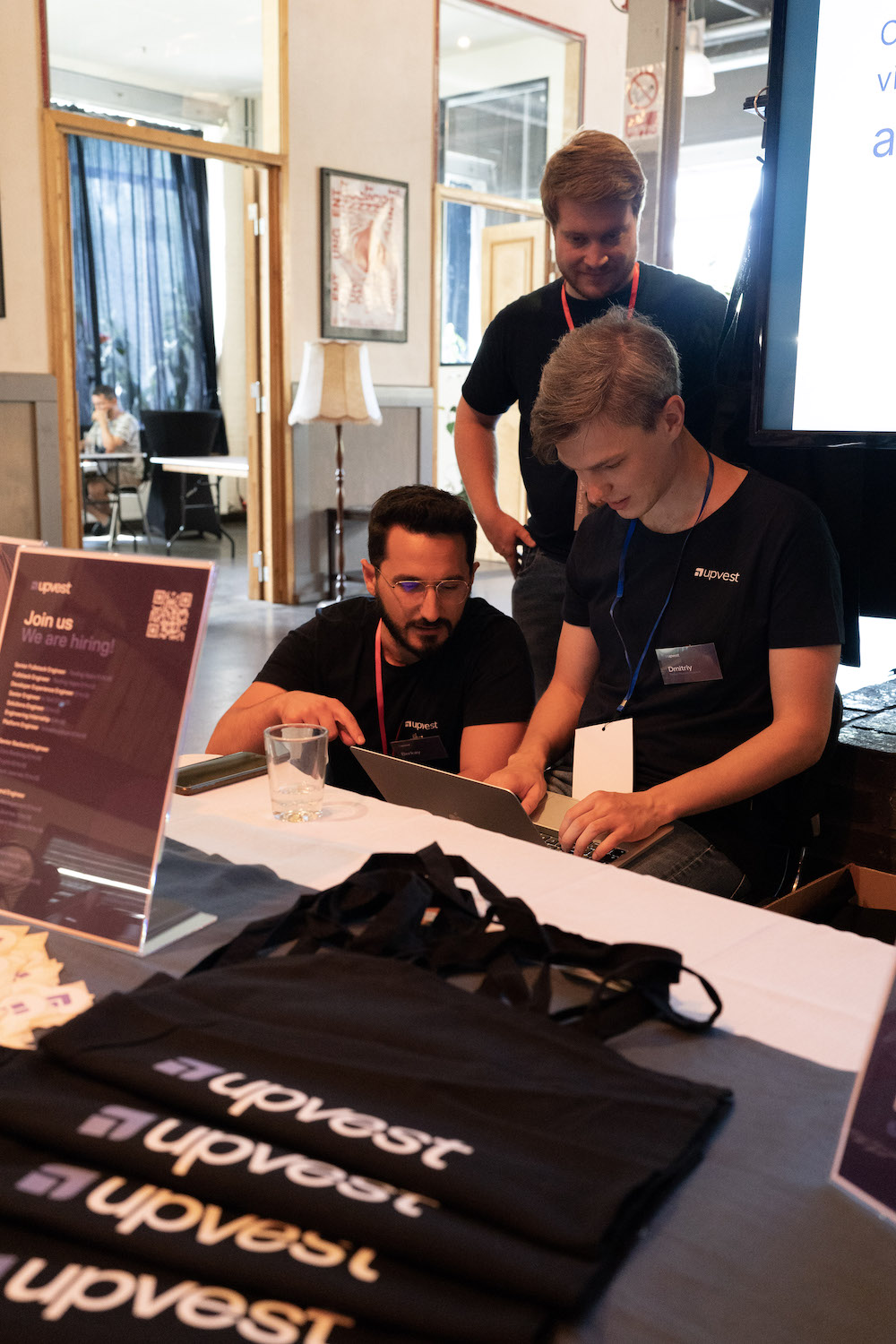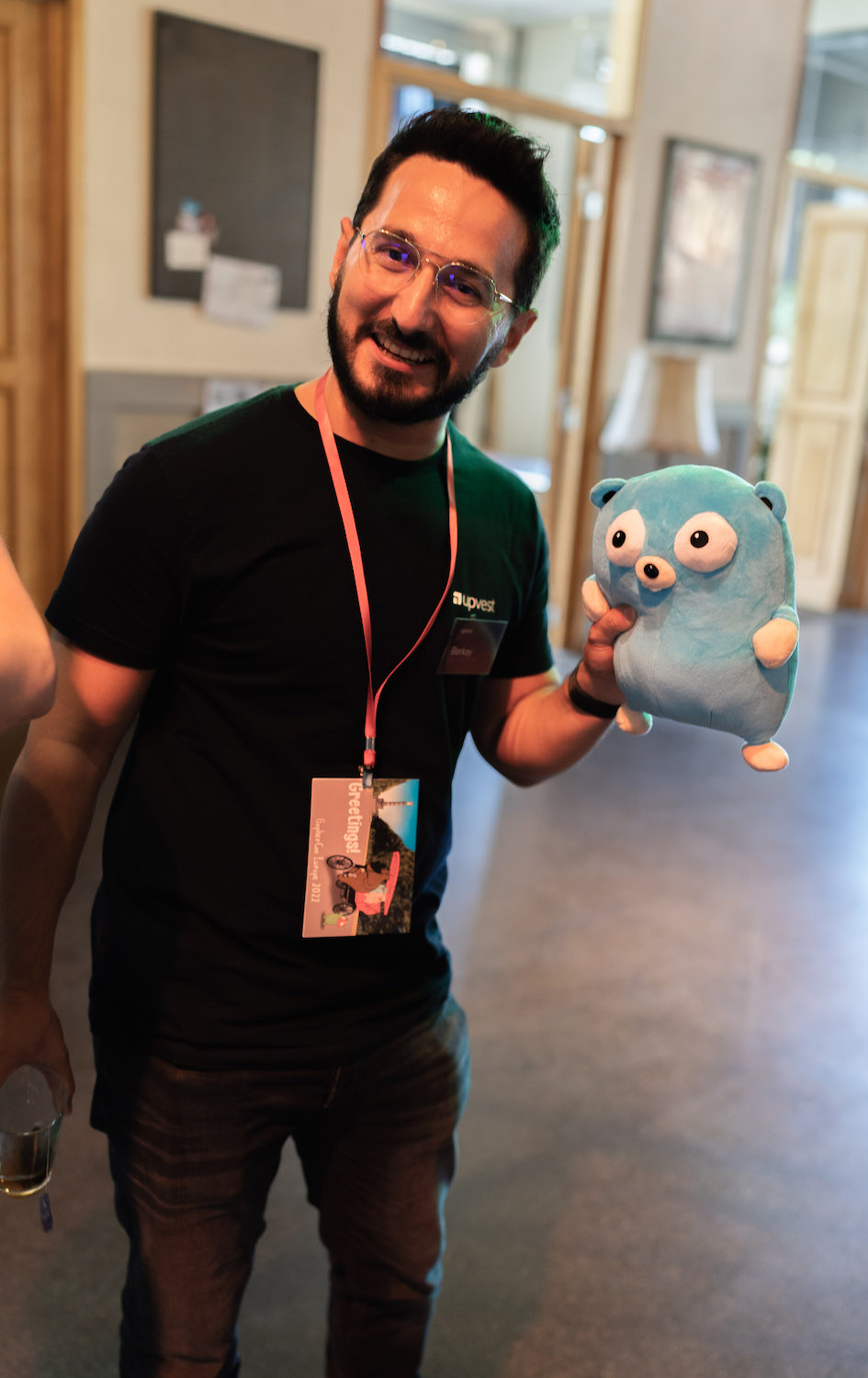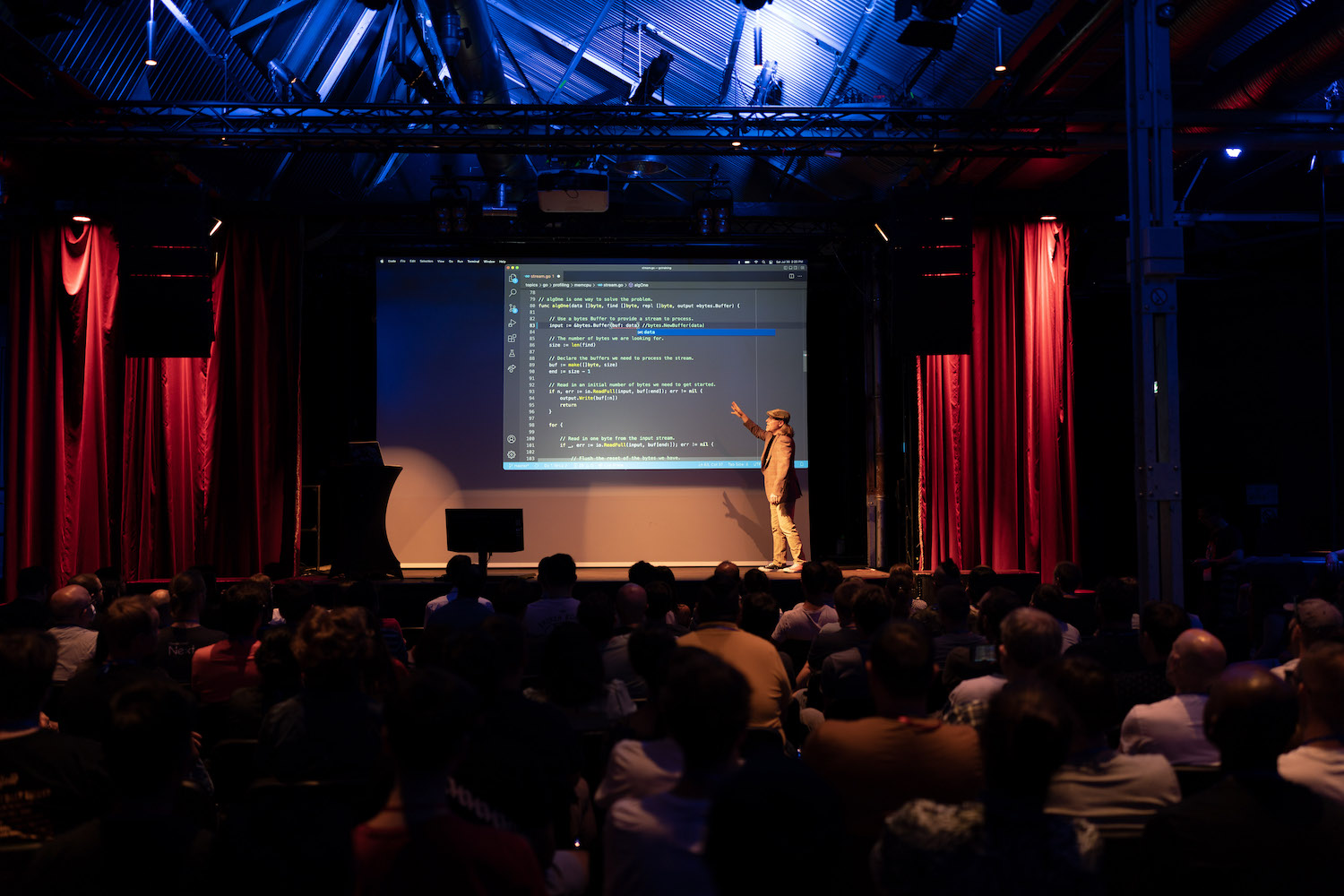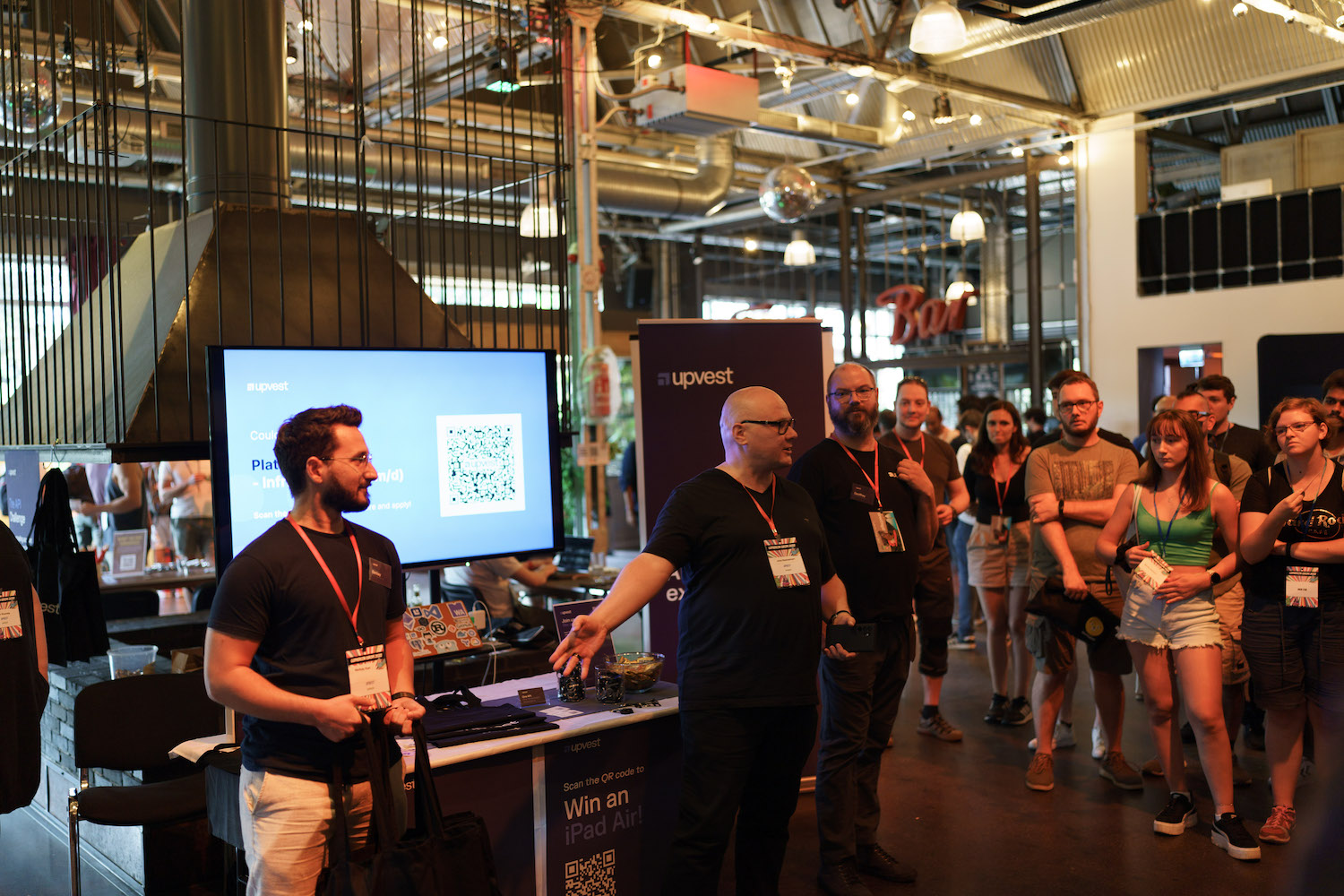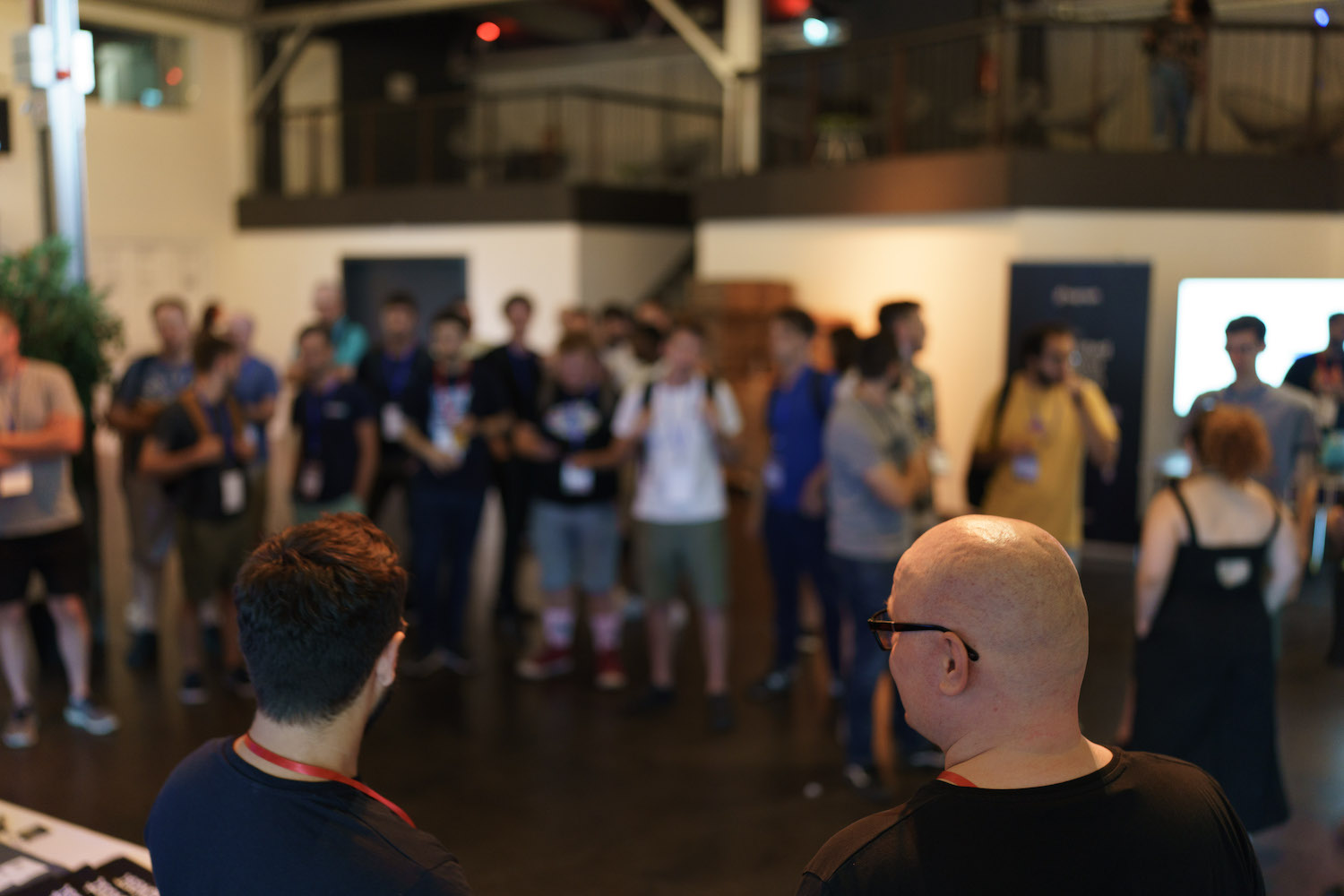For the final 3 days of July, we were proud to be platinum sponsors of GopherCon Europe 2022.
This year, the conference had significance beyond its usual status as the central event of the European Go community year. It was the first time that the conference could be an in-person event since the outbreak of COVID-19. Though most of us have already grown accustomed to interacting in real life again, you could feel what it means to the broader community to be able to gather like this. I hope that a little of that spirit filtered through to those who participated remotely too.
For us too, this event was something of a “coming-out party”. In the first half of 2022, we’ve completed our Series B funding round and secured the portfolio of licenses required to operate our Investment API. As a result, the last few months have seen the culmination of a huge engineering effort as we shared our investment API with customers for the first time.
What does Go mean to us?
Go is at the heart of what we do at Upvest. Our Investment API must be reliable, trustworthy and responsive at scale. These things don’t just happen by accident, you have to make design decisions. We chose a modern, micro-service architecture, and to build it in Go. Go gives us confidence, not only in the code our engineering teams build themselves, but in the cloud infrastructure and tooling that supports it. A huge amount of the underlying cloud platform is also written in Go.
Our technical bond to Go is then, pervasive but, this relationship isn’t just a technical one. We all have our own personal journeys with Go. We all have our favourite aspects of it, and frustrations with it. It shapes the ways we can think about problems, and how we communicate solutions. It’s not by accident that we call it a “language”.
My own journey started on November 10th, 2009, when the core Go team uttered their first words in public. Go changed the course of my career. It affected my life in real, and substantial ways. I have done things, been places, and made a lot of friends all as a result of it. It set me on a path to where I am today, and to Upvest. I am profoundly grateful to Go, and to the community that fostered it, and me.
I don’t know every Upvenger’s journey with Go, though I hope to learn them. What I do know is that we all care, and the pride we have in sponsoring GopherCon Europe is genuine.
What we took from GopherCon Europe
Beyond pride, and any altruistic urge to give back, there were more practical reasons to have a booth at GopherCon Europe.
The first one was to introduce ourselves to the community. We didn’t do that to sell anything, though we were happy to talk about it with anyone who took an interest. It was rather an opportunity to show you all what we’re building, what the opportunities are, and to show you how you might be part of our journey too. “We’re hiring!”, and it would have been foolish to miss the chance to send that message to the heart of the European Go community.
The second reason was to pick your brains a little. We presented an API challenge to passing Gophers, with the lure of an increased chance to win a prize in our raffle. We’re incredibly grateful for all those who took the time to try it out and give us feedback.
The final reason to be at GopherCon Europe was the same reason everyone else was there. To absorb new ideas, make new contacts and leave with renewed enthusiasm for Go. I came away wanting to try new things. Here are a few of my highlights (I’ll link to the YouTube videos as soon as they’re available):
Saturday:
- I was particularly impressed by Michael Knyszek’s explanation of the new memory limit functionality in Go 1.19. I left feeling I understood precisely how one might tune Go’s garbage collector for optimum performance without exhausting available RAM.
- Donia Chaiehloudj charmed us all describing her use of TinyGo and Arduino to help her keep chickens.
Sunday:
- We learned how to build eBPF-based profilers for Go binaries on Linux, using Go, from Kemal Akkoyun.
- Anna-Katharina Wickert showed us how to use taint analysis to check for security problems in your Go programs. Both these techniques have obvious applications in the provision of reliable and secure services (a must in our line of work).
- Google’s Go product lead, Cameron Balahan made the final presentation of the weekend, talking about how Go has learned to embrace the stewardship of its community and is adapting to the needs of enterprise users. In particular, the experimental work on vulnerability screening and tooling looks like a very promising line of enquiry that could one day be an invaluable tool.
The team we took to GopherCon Europe
Throughout the weekend, Upvengers were manning the booth, attending sessions and socialising. Eve, Juha (our CTO) and I were there for the whole weekend, and we were joined at various times by Anton, Berkay, Dmitry, Dorian, Dustin, Jonathan, Maria, Marius, Martin and Vlad. Countless more people were involved in planning and preparing.
I’d like to publicly say thank you to everyone involved from Upvest. Thank you also, to all of the people who worked to organise and run GopherCon Europe, and to the speakers. Finally, I’d like to thank everyone who came to speak to us. We had a great time getting to know you, and hopefully, we’ll get to know some of you even better in the future.
